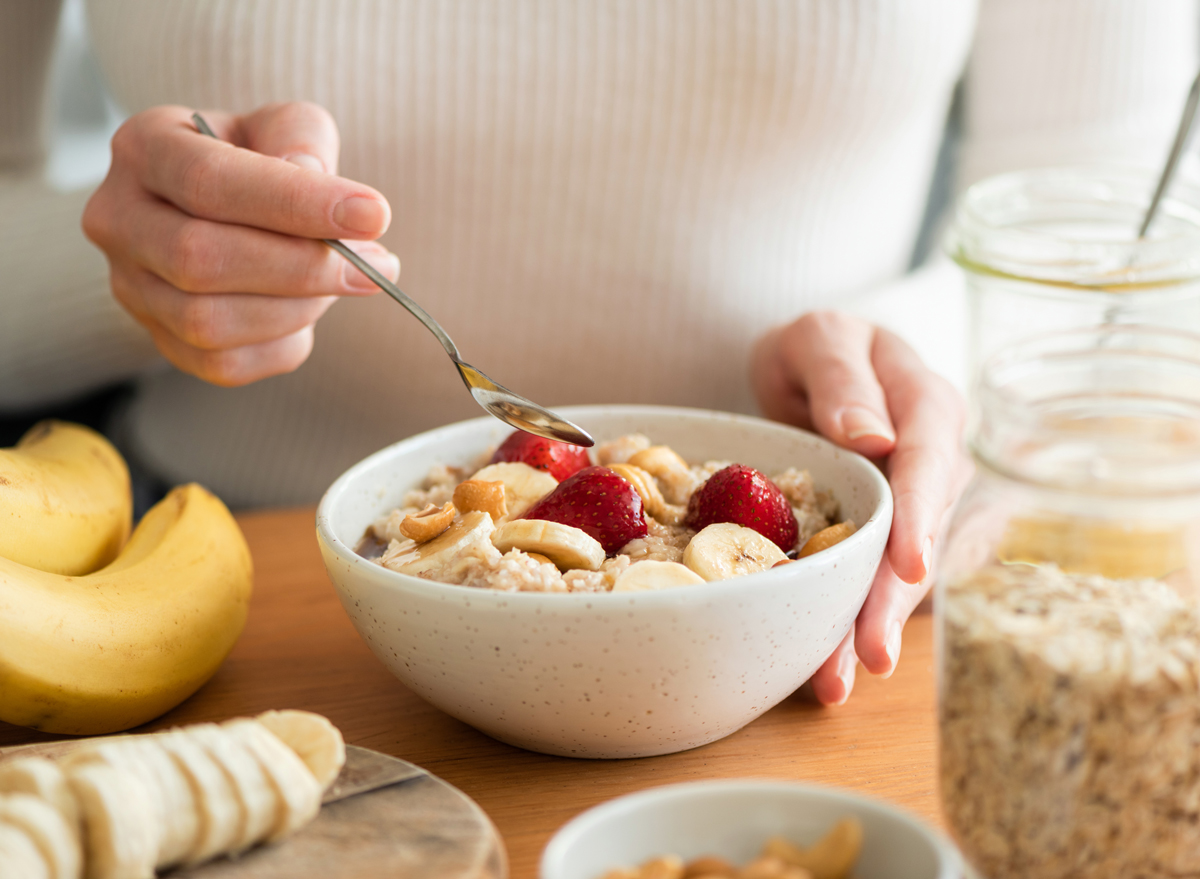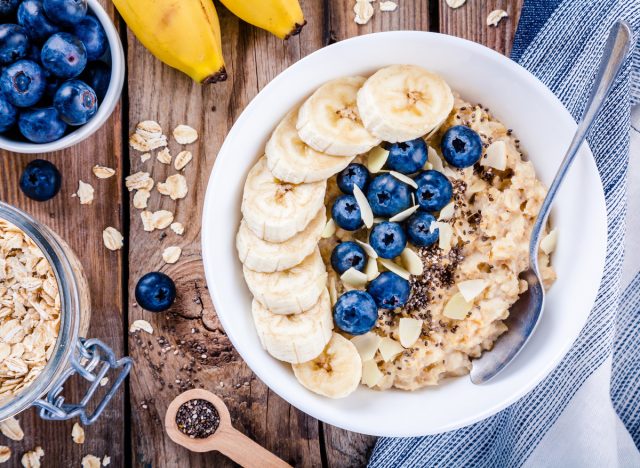The #1 Best Breakfast Habit to Slow Aging, Says Dietitian

You have a lot more control over how and at what rate you age than you probably realize—and that control starts with what you put on your plate for that first crucial meal of the day. While there are lots of healthy food options to kickstart your morning, experts (and research) suggest the best breakfast habit to slow aging is to opt for good old-fashioned oatmeal.
Sure, you may already know that oats are filling, have a well-balanced nutritional profile, and can help you meet your daily needs for a variety of different vitamins and minerals. But according to Trista Best, RD at Balance One Supplements, it also happens to be the smartest choice for longevity.
“Oats are an excellent source of whole grains and contain plenty of fiber and nutrients that make them a healthy meal or snack,” she says.

According to a 2012 study published in the Nutritional Journal, eating oats on the regular can help with a wide range of health issues that affect life expectancy including preventing heart disease and autoimmune diseases while decreasing “bad” LDL cholesterol.
Not to mention, obesity can increase your risk for a number of potentially life-shortening diseases and conditions, and the research has found oatmeal is one of the best weight loss foods around thanks to its satiating high fiber and protein content, which help control your appetite thereby reducing calorie intake.
How exactly does one food accomplish all this? For one, oats are chock full of antioxidants—specifically, a special type called avenanthramides that can help to lower blood pressure as well as reduce inflammation.
On top of that, oats are super high in a particular type of soluble fiber known as beta-glucan, which can reduce blood sugar, lower cholesterol, and promote the growth of good bacteria in your gut.
Heart disease is still the leading cause of death in the U.S. High cholesterol, type 2 diabetes, and obesity are all risk factors for heart disease. Oatmeal can help to reduce all those risks. In fact, a 2014 meta-analysis in Preventive Cardiology found that a higher intake of whole grains was significantly associated with a 21% reduced risk of heart disease.
All that said, be mindful of what you’re putting in your oatmeal, says Best.
“Many of the benefits are often negated with excessive sugar and calorie-dense toppings and mix-ins like maple syrup, brown sugar, dried fruit, and chocolate,” she adds.
By the way—oatmeal is more versatile than you may realize. If you like a sweeter breakfast, you can top your bowl with nuts, cinnamon, banana, or berries—or, if you prefer something savory in the morning, try adding veggies, olive oil, and a little garlic or red pepper flakes. You can even use oats to bulk up your smoothies and give them more staying power as well as a thicker, satisfying texture. Looking to save time in the morning? Consider whipping up some overnight oats or fluffy baked oatmeal ahead of time to grab on the go.
Keep in mind, though, that not all oats are created equal—so be sure to check out our ranking of Every Instant Oatmeal in America in 2021—Ranked!